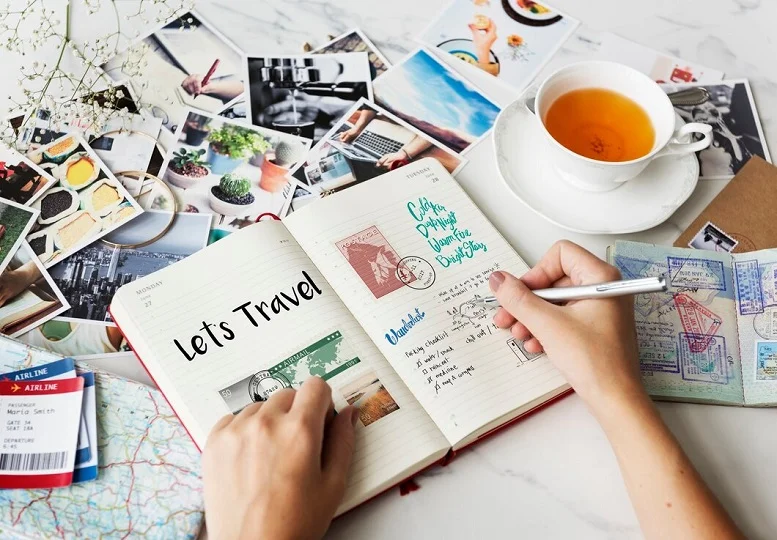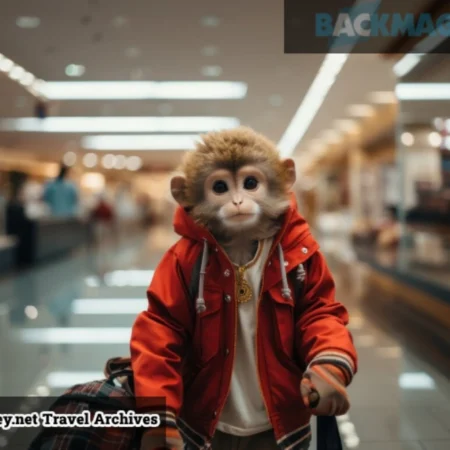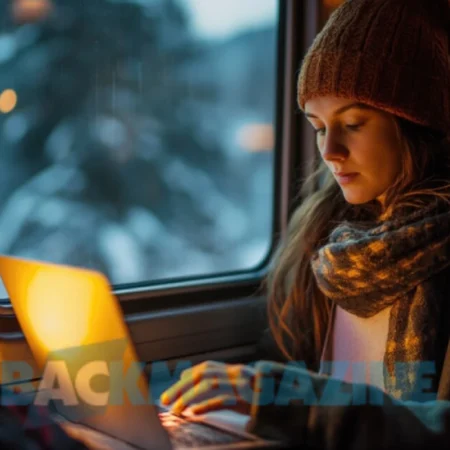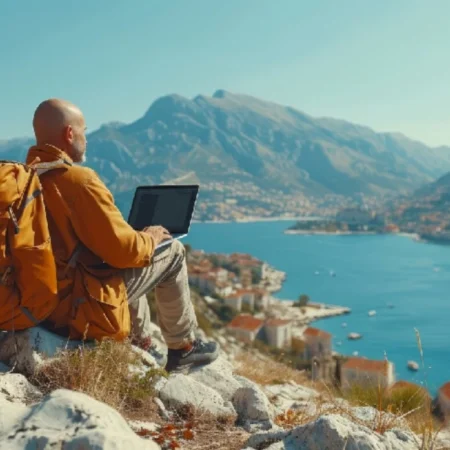
Top Essential Travel Safety Tips Every Traveler Should Know
Traveling can be a lot of fun. You get to see new places, learn about different cultures, and make amazing memories. But, it’s super important to remember that staying safe while traveling should be your top priority. This article will show you some essential travel safety tips to help you enjoy your trip while staying safe. From getting ready before your trip to staying safe at your destination, these tips will help you make the most of your travels.
The goal here is simple: to give you easy safety tips and practical advice so you can travel with confidence. Whether you’re going on a family vacation, an adventure by yourself, or a business trip, these traveler safety tips will help you be prepared. Safety isn’t about being scared; it’s about being smart and making good choices so you can relax and enjoy your trip.
By following these travel safety tips, you will be ready to handle any situation that might come up during your travels. Remember, good planning and preparation are the keys to having a safe and fun trip. Let’s dive into these travel safety essentials to make sure you have the best time possible.
Pre-Travel Preparations
Research Your Destination
Before you go on your adventure, it’s important to learn about your destination. Understanding local customs, laws, and possible risks can help you stay safe. Make sure to check government travel advisories to learn about the current situation in the area. This will help you avoid any dangerous areas or places with political problems.
You can find useful information on official travel websites that provide travel warnings and advisories. Many countries also give travel alerts about things like natural disasters, health issues, and political problems. Taking the time to learn about these things can help you avoid unexpected problems.
Knowing about local laws and customs also makes it easier to fit in, which can be important for staying safe. You don’t want to draw too much attention, especially in areas that aren’t used to tourists. Learn about cultural differences that may affect how you act around locals. For example, simple things like shaking hands or taking pictures might be considered rude in some places. Respecting these differences can keep you out of trouble.
Health Precautions
Health precautions are an important part of getting ready for any trip. Make sure you get the necessary vaccinations and carry any medications you might need. This is especially important if you are traveling to regions with common health outbreaks or tropical diseases. Bringing a basic first-aid kit is also a good idea. It should have bandages, antiseptic wipes, and medicine for motion sickness or altitude sickness.
It’s a good idea to talk to your doctor before your trip to get personalized health advice. Your doctor may recommend certain medications or vaccines based on where you’re going. Staying healthy is part of the overall travel safety checklist, and having the right health precautions can make a big difference between a fun vacation and a bad experience.
It’s also important to think about things like jet lag, dehydration, and food allergies. Make sure to get enough rest before and during your trip so you don’t get too tired, and always have access to clean drinking water to avoid dehydration.
Travel Insurance
One important step many people forget is travel insurance. It’s important to get comprehensive coverage that includes medical expenses, trip cancellations, and even lost luggage. Make sure your policy covers the type of trip you’re taking, like an adventure trip, a city vacation, or a beach getaway. Different trips have different risks, and having the right insurance will give you peace of mind.
Travel insurance helps you handle problems that might come up and ensures you can get emergency care if needed. If you have any medical emergencies while traveling, your insurance can cover the cost of treatment, which can be very expensive. Make sure to carry your insurance information, including contact numbers, in both digital and paper form.
Travel insurance also helps if your plans change, like delayed flights, missed connections, or trip interruptions. Knowing that you’re covered if things go wrong can help you feel less stressed. Look for travel insurance recommendations from trusted sources to get the best possible coverage.
Document Safety
Another key part of travel safety planning is making copies of important documents like your passport, visas, and ID cards. Keep these copies in a different place from the originals. If possible, keep one copy in your luggage, one with you, and a digital version saved securely online. Having digital copies is also helpful if your documents get lost or stolen.
It’s also smart to have a list of emergency contacts and your embassy information in multiple forms. If something happens, having easy access to this information can make things easier. Make sure you also include contact information for your insurance company and any local contacts you might have.
Packing Smart
Valuables
Packing smart can help reduce your travel risks. Limit the number of valuables you bring. Avoid carrying expensive jewelry or gadgets you don’t need. Discreet bags are a good choice since they make it less likely you’ll become a target for pickpocketing or theft. You can also use money belts or hidden pouches for carrying cash and important documents. Avoid flashy bags that might make people think you have valuable things inside.
Anti-theft backpacks are also a good idea. These bags have strong zippers and materials that make it hard for thieves to open them. Don’t put important items in the outside pockets, which are easier for pickpockets to reach. When traveling, keep your bag close to you, especially in crowded places like tourist spots and markets.
Clothing
Dressing to blend in with the locals can help you stay safe. Avoid wearing flashy clothes or accessories that draw attention. In some places, modest clothing is not only respectful but also safer. If you are visiting religious or cultural sites, make sure you wear appropriate clothing to show respect and avoid any issues.
In some places, wearing simple clothing is the best way to blend in and avoid standing out as a tourist, which can make you a target for scams or theft. Wearing comfortable, casual clothes like the locals do can make your trip much easier.
Technology
Be extra careful with your devices. Secure your mobile devices with strong passwords or fingerprint locks. Avoid connecting to public Wi-Fi unless you use a VPN to keep your information safe. Download travel safety apps that can provide important alerts or let you share your location with friends or family.
Be mindful of social media while traveling. Avoid posting your location in real-time, as this can let people know you’re away from home. Back up important information before your trip so you don’t lose anything if your devices are lost or stolen.
Transportation Safety
Air Travel
When traveling by air, there are some safe travel tips you should keep in mind. Be vigilant in airports, especially in crowded areas where theft is common. Keep your personal items close and use a secure bag for your documents and cash. Never leave your luggage unattended, even for a moment.
Label your luggage with contact information, but avoid putting your home address. Use an email or phone number instead. During security checks, always keep an eye on your belongings to make sure they aren’t misplaced or taken by mistake.
Public Transportation
Public transportation is often the easiest way to get around, but you have to stay aware of your surroundings. Know the routes and schedules to avoid getting lost or ending up in an unsafe area. In developing countries, stick to well-known transportation options. Avoid traveling alone late at night and choose seats that are well-lit.
In crowded areas like buses or subways, pickpocketing can be a big risk. Keep your bags in front of you and avoid placing wallets or phones in your back pocket. Use official taxis or licensed rideshares whenever possible to be on the safe side.
Taxis and Rideshares
When using a taxi or rideshare, always pick reliable services. Confirm the driver’s name, vehicle details, and make sure they match the information in your booking app. Sharing your trip information with a friend or family member is also a good safety measure. Verify the driver’s identity before getting in, and lock the doors once you’re inside.
If at any point you feel unsafe, don’t hesitate to ask the driver to stop or change your plans. It’s always better to be cautious than to risk your safety.
Accommodation Safety
Hotel Security
Choosing the right place to stay is an important part of your travel safety plan. Look for hotels in safe areas and read reviews to learn from other travelers’ experiences. When you arrive, use the hotel safe to store valuables like cash, jewelry, and important documents. Don’t say your room number out loud, and always lock your doors and windows.
Ask for a room that isn’t on the ground floor if possible, as it’s easier for thieves to access those rooms. Avoid opening your door to strangers, and always use the peephole to see who is at the door.
Alternative Lodging
If you prefer staying in places like Airbnb, make sure to read reviews and communicate with the host before arriving. Check if the place has safety features like smoke detectors and first-aid kits. You should also make sure you have a way to contact the host in case of any problems.
Look up the neighborhood before you book to make sure it’s safe, especially if you plan to go out at night. Always make sure there are good locks on all doors and windows.
Personal Safety While Exploring
Stay Alert
When exploring, it’s important to stay alert. Avoid distractions like being on your phone too much because it makes you less aware of what’s happening around you. Keep your things close, especially in crowded areas where pickpockets are common. Paying attention to your surroundings can help you avoid scams.
If you are doing adventure activities like hiking, biking, or water sports, use reliable guides and always wear the right safety gear. Follow the safety guidelines and avoid risky behavior that could lead to accidents.
Avoid Risky Areas
Stay away from areas that have a lot of crime. Use local resources or ask your hotel staff for advice on which areas are safe for tourists. If something feels wrong, trust your instincts and leave. Some cities have neighborhoods that are safe during the day but may not be safe at night, so plan accordingly.
Use travel safety apps that provide warnings about local dangers. These apps can help you navigate new places and avoid risky areas. Traveling in groups when possible, especially in unfamiliar areas, can also make you safer.
Emergency Preparedness
Knowing what to do in an emergency is a big part of travel safety. Learn the local emergency numbers and know where the nearest embassy or consulate is. Keep a list of emergency contacts on your phone and written down. You should also have the numbers for hospitals and the local police.
If there are natural disasters or political problems, having a plan can make a big difference. Watch the local news or subscribe to alerts that give you updates. It’s also a good idea to have a small emergency kit with things like bottled water, a flashlight, and a whistle.
Financial Safety
Money Management
Managing your money wisely can help keep you safe. Use credit cards when you can, as they offer more protection than cash. Only carry what you need for the day, and don’t flash large amounts of money. Keep some cash in different places, like in your wallet, in a money belt, and hidden in your luggage.
Let your bank know you’re traveling so they don’t freeze your credit card due to unusual activity. Make sure you have some local currency for small transactions. This can help you avoid using currency exchange places in unsafe areas.
ATM Usage
When using ATMs, choose ones in well-lit, secure locations, like inside a bank or a mall. Always cover the keypad when entering your PIN to protect yourself from identity theft. Be aware of anyone standing too close. Avoid using ATMs late at night or in isolated areas.
If you don’t feel safe using an ATM, ask a friend to go with you. It’s also a good idea to use ATMs that are connected to well-known banks to avoid problems like card skimmers, which can steal your information.
Health and Hygiene
Food and Water Safety
Being careful about food and water is very important for staying healthy while traveling. Eat at reputable restaurants and avoid street food if you’re not sure about the cleanliness. Always drink bottled or purified water to reduce the chance of getting sick from waterborne diseases. Check that the bottle seal is intact before you drink it. If bottled water isn’t available, use purification tablets or a portable water filter.
Avoid eating raw or undercooked foods, especially in places where the food safety standards might not be as high. If you have food allergies, learn how to say your allergies in the local language or carry an allergy card.
Personal Health
Staying healthy while traveling is super important. Drink plenty of water, especially if it’s hot, and make sure you get enough rest. Carry any medicines you need, as well as things like pain relievers and antacids. If you have a chronic illness, keep your medication with you and have a note from your doctor explaining your condition.
Sun protection is also important if you’re visiting sunny places. Use sunscreen, wear a hat, and try to stay out of the sun during the hottest parts of the day. Don’t forget insect repellent if you’re traveling to areas with lots of bugs.
Cultural Awareness
Respect Local Customs
Being respectful of local customs can make your travel experience much better. Learning a few basic phrases in the local language, like “please” and “thank you,” can go a long way. Understanding cultural differences also helps you avoid misunderstandings or conflicts. It shows that you’re trying to be considerate of their culture.
Some places have specific rules you need to follow, like how to dress in religious areas, how much to tip, or when you can take pictures. Always ask before taking photos of people, especially in rural areas. Being culturally sensitive can help you make friends and have a richer travel experience.
Respecting local traditions also means being careful about how you act in public. Avoid doing things that could be seen as rude, like public displays of affection or wearing inappropriate clothes. By being considerate, you help create a positive experience for yourself and the community you’re visiting.
Conclusion
Staying safe while traveling doesn’t have to be hard. By following these simple safety tips, you can lower your risks and focus on having a great time. From planning ahead to staying alert while exploring, these tips will help you travel confidently and safely. A little planning can make the difference between an amazing trip and a stressful one.
Traveling is all about making wonderful memories, but safety always comes first. Stay prepared, stay informed, and have fun! With the right preparation and a positive attitude, you can explore the world, make lasting memories, and stay safe while doing it. Just remember that a bit of caution can go a long way—enjoy your travels to the fullest while keeping your safety in mind.
Stay connected for more news and updates at BackMagazine – your go-to source for the latest insights and trends!







No Comment! Be the first one.